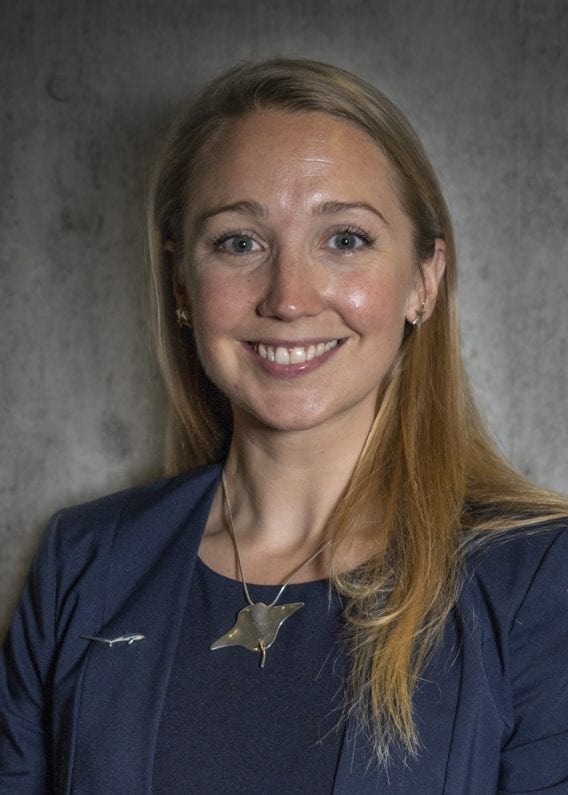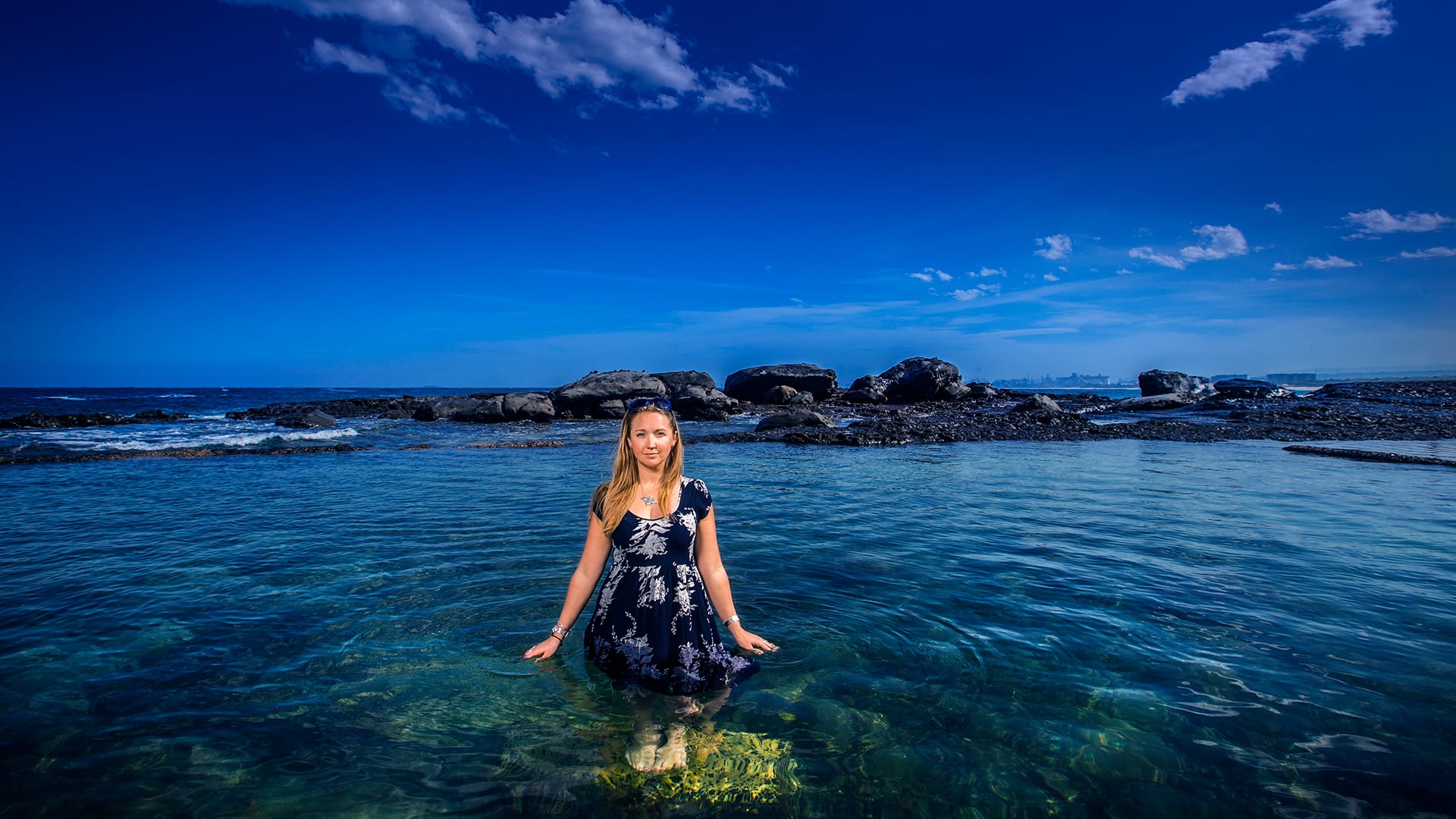Harriet Harden-Davies is on the frontlines of ocean policy
By Daniel Hentz | March 25, 2021
Dr. Harriet Harden-Davies is a guest investigator at WHOI’s Marine Policy Center and a postdoctoral fellow at the Australian Natural Centre for Ocean Resources & Security (ANCORS) at the University of Wollongong in Australia. As a co-lead of the Deep Ocean Stewardship Initiative, Harriet works toward equitable and sustainable governance of the high seas by engaging scientists in the development of a new U.N. treaty for marine Biodiversity Beyond National Jurisdiction (or BBNJ). Passionate about giving all countries fair and equitable access to the high seas, she’s also a member of a panel of experts focused on capacity building in the Intergovernmental Oceanographic Commission of UNESCO. Harriet sat down with Oceanus to talk about her journey into marine policy and why the BBNJ is a game-changing global collaboration.
How did you make your way into the world of marine policy?
I’ve been working in the science-policy space for more than 10 years now. I came from first being an undergraduate biology student at university in the UK, and then I went to Australia to run the science policy center for the Australian Academy of Technology and Engineering. I wasn’t looking at ocean issues in particular at that point in my life, but I got to be at that interface between government policy and the science community. I found my way back into the ocean space when I went to do my PhD at the University of Wollongong in New South Wales, Australia. I was really fascinated by the greater ocean commons—the two-thirds of the ocean that lies in areas beyond national jurisdiction. It was really in that time during my life—working on my PhD, finding my way from science to policy and into the space of international ocean governments and law of the sea—that I ended up being involved in and ran initiatives.

As a guest investigator at WHOI, Harden-Davies has also been a part of vital discussions surrounding governance of the Ocean Twilight Zone and its resources. (Photo Courtesy of the © Nippon Foundation)
How would you describe your role at U.N. negotiations?
I often work as a translator between the worlds of scientists and policymakers. You know, I often feel that I know the scientists who have the answers in many ways to the questions that diplomats and policymakers want to ask or want to know. It’s just that sometimes those questions aren’t necessarily articulated well.
Can you describe the idea of ocean equity on the high seas?
One way of looking at it is from the idea of distribution. The global ocean commons will provide some benefits, there are resources there, that only some countries can use. This raises fundamental questions about who gets to benefit from these shared ocean spaces. It’s sort of about who gets to catch and who gets to take, and who gets to shoulder the responsibility of those activities. The other idea of this equity has to do with procedure and representation—whose interests are represented in decision-making [for high seas management]. Why that’s important for these areas beyond national jurisdiction is that, despite these being common spaces, there’s only a handful of nations that have the technological capacity and financial resources to get out there. That might apply to fishing, mining, or scientific research. It’s all about rights and responsibilities: all states have the right to use the high seas, but not all have the capacity to do so.
What makes this Biodiversity Beyond National Jurisdiction proposal historic?
The recent example to me was laid out in the Global Ocean Science report from UNESCO. That report clearly stated how uneven science-technology capacity is worldwide. And so, these issues around lack of ocean science and technology have been stuck at the international level for decades. There’s even a resolution adopted in the Law of the Sea Convention in 1982 that lamented the lack of ocean science capacity in many countries. Until this treaty, we haven’t had a comprehensive set of procedures to deal with the environmental impacts caused by humans at sea.
Is there any advice you can offer students who want to get involved in marine policy work?
One cannot be complacent at this time, so I love this question. I think that we really need to think about enabling frameworks and environments for our younger generations to tackle these wicked problems that we face. Areas more than 200 nautical miles offshore, they’re connected to us on land. Fish and organisms don’t obey lines or boundaries on maps, so we really need to think about these connections. So, be really curious; ask why these decisions are made, who decides and who has a voice—whether it's in a local community or at the United Nations.

